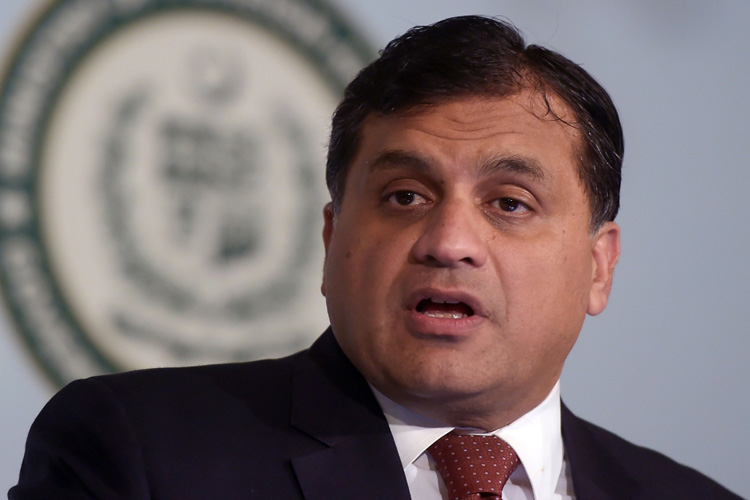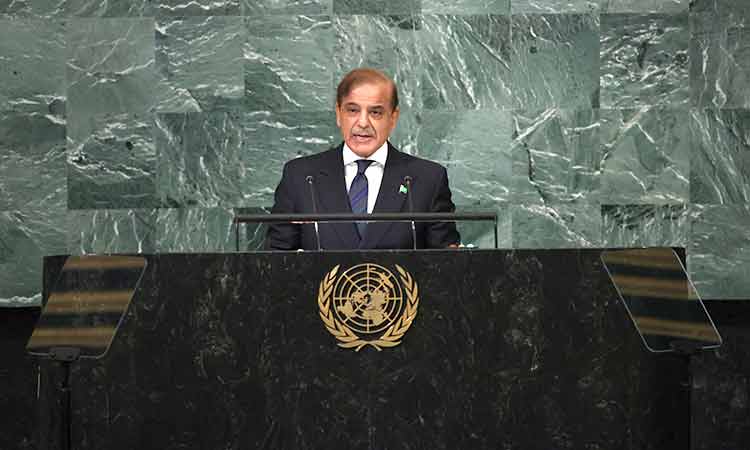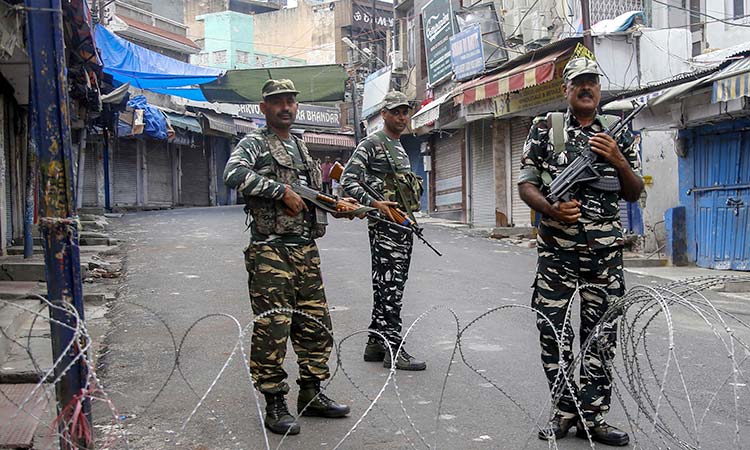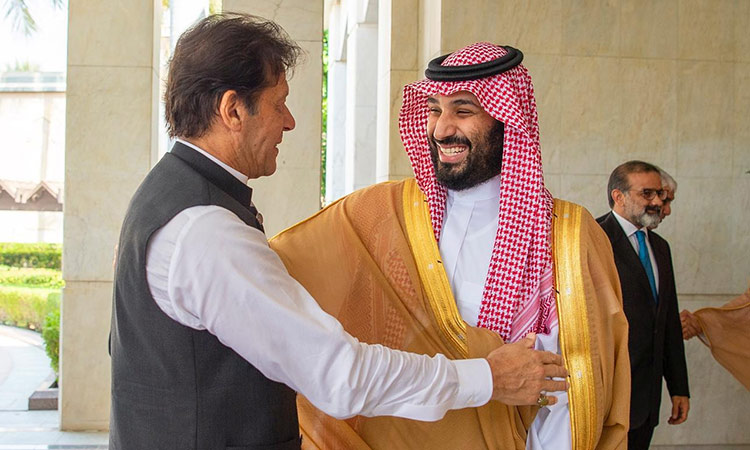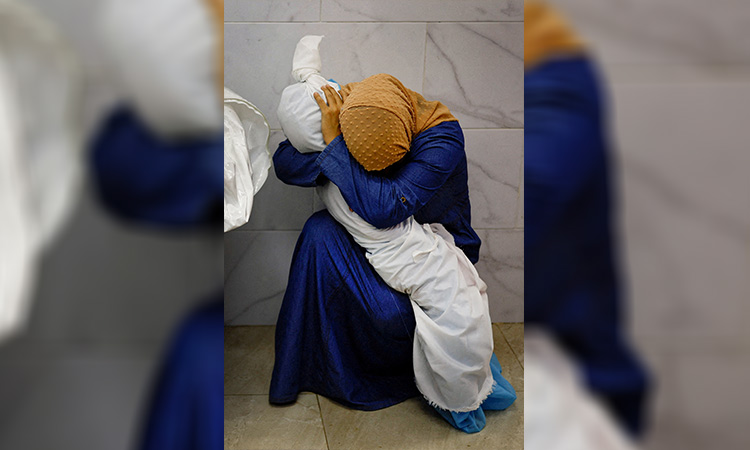Foreign envoys visit areas affected by Indian firing
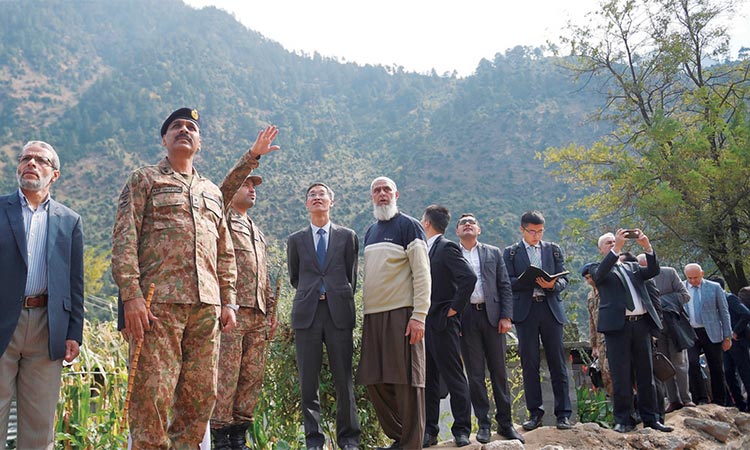
An army officer (third left) briefs foreign diplomats during their visit to Neelum Valley on Tuesday. Agence France-Presse
The diplomats have been taken to the Nauseri, Shahkot and Jura sectors near the Line of Control (LoC), as well as the Nausada village, which has suffered severe damage in attacks by Indian troops. The trip was arranged so they can verify for themselves the claims made by the Indian army chief.
Inter-Services Public Relations (ISPR) Director General Maj Gen Asif Ghafoor briefed the diplomats and media persons about the situation in the area. The visitors were also shown artillery shells fired by the Indian troops from across the LoC.
He said that in 2018, there were 3,038 Indian ceasefire violations and 58 civilians were martyred while 319 were injured. In 2019, so far there were 2,608 ceasefire violations and 44 civilians were martyred and 230 were injured due to Indian firing. He said the difference between the Pakistan army and Indian army was that the former follows military norms and only targets Indian posts.
Ghafoor added that the foreign diplomats had visited Jura bazaar and met the local population and shop owners and witnessed firsthand the damage inflicted on the shops and houses that were claimed to be launch pads by India. “It’s all innocent people being targeted by India.”
No official from the Indian High Commission joined the team visiting the LoC today, Dr Faisal said.
“The Indian side has not joined us in the visit to the LoC nor have they provided coordinates of the alleged ‘launch pads,’” he tweeted. He added that India had also failed to share the coordinates of launch pads which the Indian army claimed to have destroyed. Claims’ by Indian Army Chief remain just that: ‘claims.’”
Ghafoor — who had last night challenged Indian officials “to take any foreign diplomat/media to ‘prove’ [its allegations] on ground” — also commented on the absence of Indian officials: “What good [is the] Indian High Commission which can’t stand with its Army Chief?”
“Indian High Commission staff didn’t have the moral courage to accompany fellow diplomats in Pakistan to LOC,” he tweeted. “However, a group of foreign diplomats and media is on the way to LoC to see the truth on the ground.”
Meanwhile, Malaysian Prime Minister Mahathir Mohamad said he would not retract his criticism of New Delhi’s actions in the disputed region of Kashmir even though Indian traders have urged a boycott of Malaysian palm oil.
The impasse could exacerbate what Mahathir described as a trade war between the world’s second biggest producer and exporter of the commodity and its biggest buyer so far this year.
India’s top vegetable oil trade body on Monday asked its members to stop buying Malaysian palm oil after Mahathir said at the UN General Assembly last month that India had “invaded and occupied” Kashmir, a disputed Muslim-majority region also claimed by Pakistan.
“We speak our minds, and we don’t retract or change,” Mahathir told reporters outside parliament. “What we are saying is we should all abide by resolutions of the (United Nations). Otherwise, what is the use of the UN?”
The UN Security Council adopted several resolutions in 1948 and in the 1950s on the dispute between India and Pakistan over Kashmir, including one which says a plebiscite should be held to determine the future of the region.
Mahathir said Malaysia would study the impact of the boycott called by the Mumbai-based Solvent Extractors’ Association of India and look at ways to address the issue.
New Delhi has so far refused to comment on the trade spat.
Despite tensions running high over Kashmir, Pakistan and India are set to sign the agreement that would govern the operations of the visa-free Kartarpur Corridor for Indian Sikh pilgrims.
Foreign Office spokesman Dr confirmed that an agreement has been reached on the draft and the two sides would be signing it soon. He said “the dates for signing of the accord were being worked out.”
Tariq Butt / Reuters
